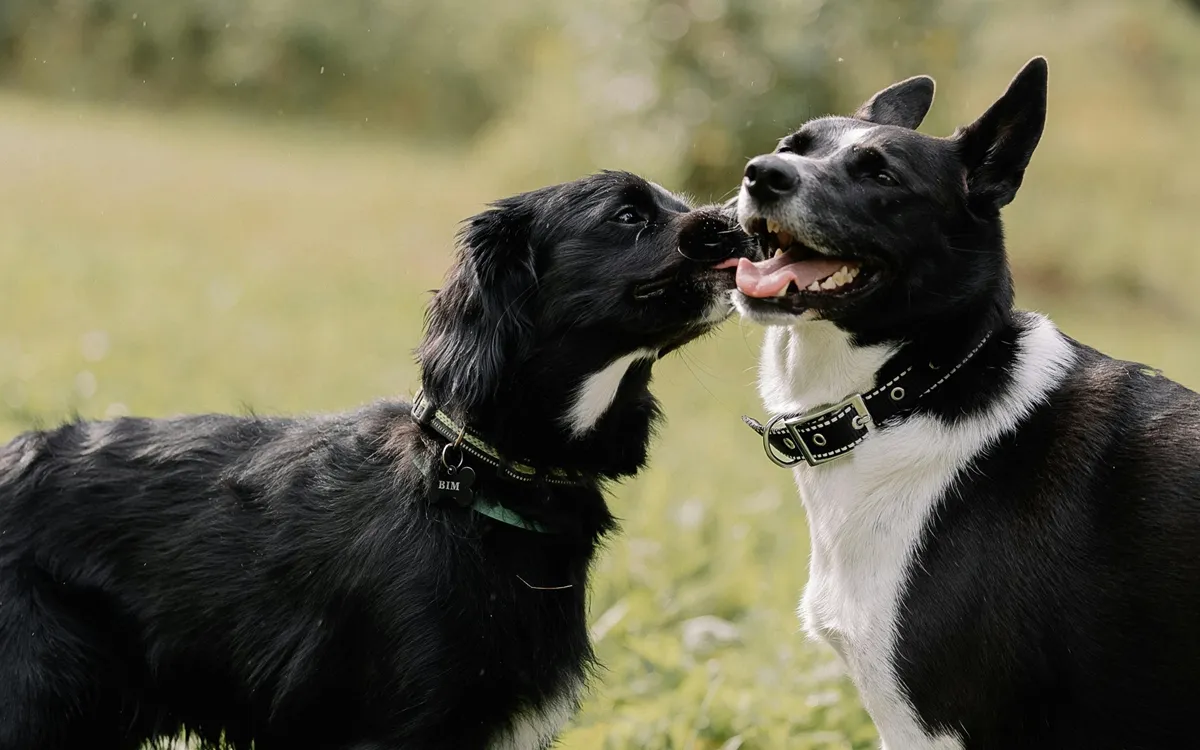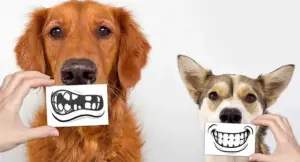Dogs truly adore licking. Among all things lickable, most dogs prioritize feet—whether their owner’s or their own. When their „licking addiction“ kicks in, they might even lose themselves in the act, appearing ready to lick until the end of time—sometimes accompanied by blissful grunts.
Table of Contents
Why does my dog lick my feet?
Today, let’s explore this quirky behavior.
The magical "Vomeronasal Organ"
We’ve previously discussed dogs’ extraordinary sense of smell, which stems from two advantages:
- Far more olfactory nerve cells than humans.
- A highly developed olfactory bulb in their brains.
These biological advantages allow dogs to detect faint odors, giving every pup the potential to be a „Sherlock Holmes.“ But even more fascinating is their second sensory „hardware“ for decoding special chemical messages.
In 1813, Danish anatomist Ludvig Jacobson discovered a unique olfactory organ in animals: the vomeronasal organ (VNO). Unlike standard smell receptors, this organ specializes in detecting pheromones—chemical signals carrying social or biological information.
To humans, pheromones have no discernible „scent.“ But animals with a VNO can „read“ pheromones like a biological text message. For example:
Dogs mark territory or objects with pheromones via licking, rubbing, or urine. A urine-marked wall becomes a „message board“ declaring ownership, broadcasting details like gender, age, health, and even combat readiness.
When „messages“ get too crowded, dogs might lick the spot to directly „download“ specific pheromones, then „reply“ with their own urine: „This is mine now—fight me!“ or „Hey beautiful, wanna hang out?“
This ability also helps dogs understand humans. Medical detection dogs (e.g., diabetic alert dogs, cancer-sniffing dogs, or COVID-detection dogs) use their VNO to identify disease-related hormonal changes. Even untrained pets sniff their owners’ pheromones to feel comforted and happy.
Why feet?
Simple: feet are the smelliest!
When owners return home and remove shoes/socks, dogs often rush to lick their feet enthusiastically. To dogs, this is a way to:
Reabsorb their owner’s scent after prolonged separation, boosting their sense of security.
Leave their own scent on the owner, reinforcing bonding.
Some dogs also target their owner’s rear or groin—awkward for humans, but pure bliss for dogs. The act of licking releases endorphins, creating a self-reinforcing cycle: the more they lick, the happier they get.
Other factors:
Salt cravings: Sweaty feet provide a salty snack.
Playful reinforcement: If owners laugh or encourage the behavior, dogs interpret it as a fun game.
Note: Letting dogs lick feet isn’t always wise—especially if the owner has foot fungus. Next stop after feet? Your face.
Why do dogs lick their own feet?
① Anxiety relief: Similar to humans biting nails, dogs may lick paws to cope with stress (e.g., separation anxiety).
Solutions: Spend more time playing/walking with them.
A 30-minute morning walk can reduce stress for owners with busy schedules.
② Overgrown paw fur: Long fur can trap debris (pine needles, pebbles) or cause slipping, prompting obsessive licking. Regular paw trims help.
③ Health issues: Allergies, dryness, wounds, or infections may trigger licking. Watch for redness, limping, odor, or bleeding—consult a vet if symptoms arise.
In most cases, moderate licking is harmless. But if it becomes excessive, an Elizabethan collar (cone) might be necessary to break the cycle.
Final thought
For dogs, licking is a natural, often joyful behavior—whether directed at you or themselves. Unless it’s causing harm, there’s no need to overreact. After all, in their eyes, we’re all just giant, walking pheromone dispensers!









Add comment